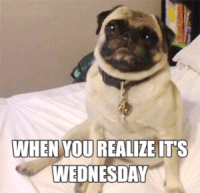As the anti and purity culture took hold on Tumblr there were pro-shipping and anti-anti blogs stepping up to provide alternative views, support for shippers and creators, defend against ageism and harassment, and providing information about fiction, fandom history, and more.
The post "How Web 2.0 (and especially tumblr) is ruining fandom" is especially enlightening. The post is at :
https://freedom-of-fanfic.tumblr.com/post/169347159994/how-web-20-and-especially-tumblr-is-ruiningIf it ever gets deleted, as many pro-shipping blogs have been shut down, I have an Evernote capture:
https://www.evernote.com/shard/s260/sh/56204b96-5961-44fa-b86a-1ed2e1eb6e24/6541240b7bc13f651c80b445afe3d079The post describes the "Web 2.0: web model where dotcoms create a free space for users to generate their own content, depending on advertisers for their income"; so Tumblr and Twitter, but not Dreamwidth and not AO3 who do not have advertising.
Some of the key points, expanded on in the post include:
• following people instead of joining communities based on interests has negative emotional and social implications
• social media sites benefit from knocking down privacy walls
• social media sites benefit from eroding online anonymity.
• social media sites benefit from conflict.
• social media sites are therefore deincentivized to address abuse reports, increase moderation, improve blacklisting tools, or offer privacy options.
• moderated communities were replaced by following unmoderated tags, directly leading to and encouraging the creation of hate spaces
• reacting to content that enrages you increases the chances of encountering it again because algorithms
• It’s easy to spread misinformation (and hard to correct it)*
• information fatigue caused by web 2.0 makes black & white thinking look attractive
• everyone is only 2 seconds away from being doxxed
* There's an awful anti-rape post that when I see it, I reblog with the
Snopes debunking because telling women they need to cut their hair or risk getting raped is not something you should have to be seeing in this day and age.
Also a post that says you've abused your child's trust the first time they lie to you, as if learning to lie isn't part of expected development from two – three and half years old.
Furthermore
“Discussion on tumblr is like two people trying to have a philosophical debate on opposite sides of a crowded room by megaphone” - exactly this. and bystanders pressure - knowing that your responses are visible to everyone - adds so much pressure to the debaters to be decisive and firm [ie lack of nuance and reasonable discussion]
– the loss of semi-private spaces where we can be certain that our audience will share our contextual basis and we can be sure the content won’t spread beyond where we want it to makes us lonely. We always have to have our business faces on: every time we slip we risk destruction by shame culture.Which is why privacy controls like we have at DW and even LJ, are so important. Friends/Circle vs public. Specific people you choose for a filter. Posting content in your own space.





